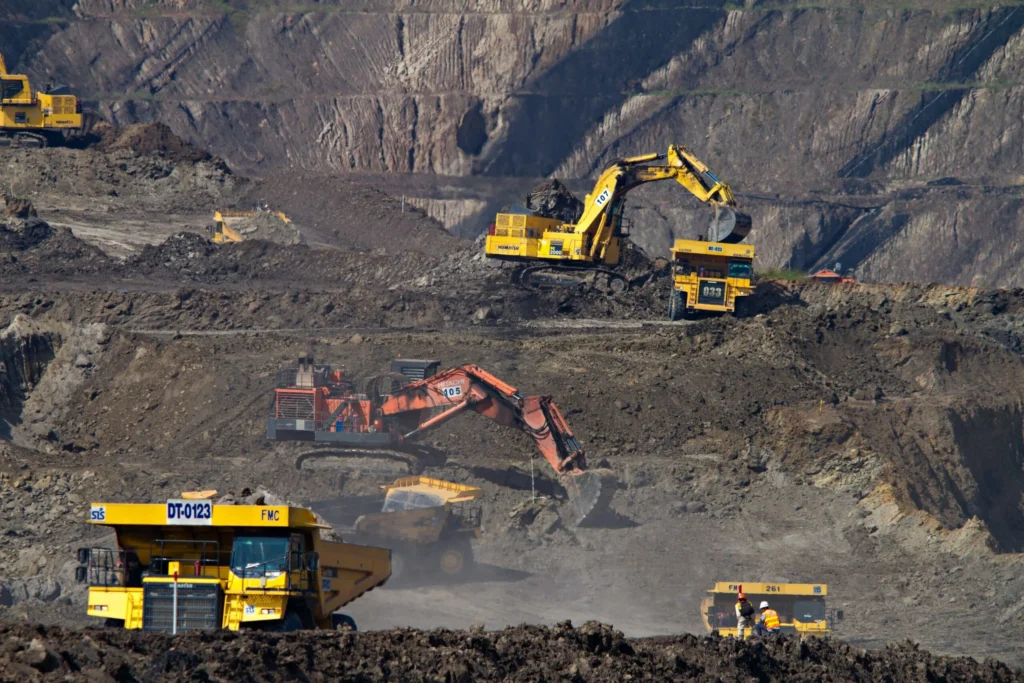- Since 2014, AFC has invested over $1 billion in Africa’s mining of precious metals and critical minerals across several countries.
- The latest partnerships will further strengthen the sector by driving significant capital flow into the continent.
- According to the United Nations Conference on Trade and Development (UNCTAD), two-thirds of developing countries depend on commodities.
Boosting the mining of precious metals in Africa
Africa’s mining sector is poised for significant developments as the Africa Finance Corporation (AFC) throws its weight behind the industry, a key driver of economicjordan air force 1 castelli gabba yeezy shoes under 1000 jordan proto max 720 yeezy boost 350 v2 hyperspace durex intense vibrations ring air jordan 1 element brock purdy jersey dallas cowboys slippers mens custom kings jersey custom dallas stars jersey air jordan 1 element uberlube luxury lubricant air jordan 1 low flyease custom dallas stars jersey growth in commodity-dependent countries.
AFC, the continent’s leading instrumental infrastructure solutions provider, has announced several strategic partnerships on the sidelines of the recently concluded 2024 Mining Indaba conference in Cape Town to boost Africa’s mining sector, ushering the continent into a new era of growth and prosperity.
Since 2014, AFC has invested over $1 billion in Africa’s mining of precious metals and critical minerals across several countries, and the latest partnerships will further strengthen the sector by driving significant capital flow into the continent.
Cobalt and copper in DR Congo
AFC signed an expression of interest (EOI) with Gécamines, the largest mining company in the Democratic Republic of Congo, to develop certain assets in the mining sector in DRC, including critical minerals.
The collaboration will also focus on several initiatives for near-term co-financing mining and infrastructure-related projects for execution by the end of Q2 2024.
La Générale des Carrières et des Mines (Gécamines) is a Congolese commodity trading and mining company headquartered in Lubumbashi, in the Katanga region of DRC.
A State-controlled corporation, it is engaged in the exploration, research, exploitation, and production of mineral deposits, including copper and cobalt.
It is one of the largest mining companies in Africa and the biggest in the DRC, sitting on the world’s most significant deposit of cobalt and some of the world’s largest deposits of copper.
Gécamines has significant interests in copper mines, including but not limited to Kambove, Kipushi, Kamfundwa, and Kolwezi. The DRC has the world’s largest reserves of cobalt and the seventh-largest reserves of copper.
Read also: The $78M AfDB Fix Taking Child Labourers off DRC’s Cobalt Mines to schools
Gold in Sierra Leone
AFC announced the successful closure of a $55 million mezzanine debt facility for FG Gold Limited, facilitating the commencement of construction for the Baomahun Gold Project in Sierra Leone.
The project represents a significant milestone, poised to become Sierra Leone’s inaugural commercial gold mine.
Upon completion, it is projected to contribute approximately 10 per cent to Sierra Leone’s GDP and generate 900 direct and indirect job opportunities within the country.
This financing builds upon AFC’s previous investment of $45 million in 2022, which played a pivotal role in the extensive development of the project, culminating in the completion of its definitive feasibility study.
Read also: End the Mining-Only Mindset: How Africa Can Benefit from its Critical Minerals
Gold and Lithium in Nigeria
Last year, Thor Explorations Ltd, through its wholly owned subsidiary Newstar Minerals Ltd, obtained rights to explore over 600 square kilometres in Nigeria’s West Oyo, Kwara, and Ekiti lithium project areas, highlighting the West Oyo site as home to the nation’s most substantial lithium pegmatite occurrences.
AFC has signed an EOI with Thor Exploration to develop this project, marking the Corporation’s commitment to supporting the establishment of Nigeria’s first large-scale lithium mine.
This initiative is pivotal in advancing global energy transition objectives, solidifying Nigeria’s position as a critical enabler of renewable energy.
AFC is the largest investor in Thor Explorations, investing $86 million towards the Segilola Gold Mine, Nigeria’s first commercial-scale gold mine.
Read also: UK-based company to pump $100 million into Nigeria’s mining sector
Manganese in Botswana
As part of its drive to support mining in the continent, AFC has also signed an Expression of Interest (EOI) with Giyani Metals for the financing of a high-purity manganese (HPM) mine and plant in Botswana – a rare venture in Africa.
HPM is a critical mineral for batteries used by electric vehicles and is central to the overall transition towards a more environmentally friendly global economy.
In addition to job creation, Botswana will benefit through diversification in an economy largely dependent on income from diamond exports.
Titanium in KwaZulu-Natal
The Corporation has also announced the launch of the syndication process and executed the senior debt term sheet for Nyanza’s 80,000 tonnes per annum TiO2 (Titanium) pigment plant in Richard’s Bay Industrial Development Zone.
Valued at $780 million, this sulphate-based TiO2 pigment plant will stand as Africa’s first and only one.
“The launching of the syndication process follows the successful completion of the project development stage, which AFC co-financed with a $3 million Project Development Facility,” it said in a statement.
The plant is strategically positioned to add value to the region’s abundant titanium ore, historically exported without any value addition.
AFC serves as a co-developer and co-mandated Lead Arranger alongside Afreximbank, underlining the Corporation’s commitment to advancing transformative projects in the region.
Read also: Why West Africa is becoming a hub for conflict minerals
Wood Mackenzie Study
In October 2023, AFC and Solid Mineral Development Fund (SMDF) commissioned Wood Mackenzie to conduct a comprehensive study to assess the feasibility of establishing a midstream processing plant in Nigeria.
Wood Mackenzie’s study focused on the viability of processing several critical minerals, including lithium, cobalt, and manganese.
The insight and outcome of the study revealed at the Mining Indaba in Cape Town showed that establishing a processing plant in Nigeria will significantly bolster the country’s foreign exchange generation capacity through significant annual trade volumes and create thousands of local jobs.
Speaking at the signing, AFC’s Chief Investment Officer Sameh Shenouda noted that while over 30 per cent of the world’s minerals are in Africa, less than five per cent of global development funding is invested in African mining projects.
“Recognising the significant funding gap in the African mining sector, AFC is committed to pragmatic solutions and supporting the sector’s growth, having invested about $1 billion across metals and critical minerals in several African countries,” Shenouda said.
“Through these strong partnerships with like-minded stakeholders, our goal is to open up new markets, promote a greener economy, and contribute to the overall development of African countries,” he added.
Africa Finance Corporation is a pan-African Multilateral Development Financial Institution established in 2007 by sovereign African states to provide pragmatic solutions to Africa’s infrastructure deficit and challenging operating environment.
Its approach combines specialist industry expertise in financial and technical advisory, project structuring, project development, and risk capital to address Africa’s infrastructure development needs and drive sustainable economic growth.
Sixteen years on, AFC has developed a track record as a critical partner in Africa for investing and delivering on instrumental, high-quality infrastructure assets that provide essential services in the core infrastructure sectors of power, natural resources, heavy industry, transport, and telecommunications.
It has 43 member countries and has invested $13 billion across Africa since its inception.
Read also: Egypt secures $250 million AFC loan to boost economic resilience
Commodity dependence
According to the United Nations Conference on Trade and Development (UNCTAD), two-thirds of developing countries depend on commodities.
In 2019, a UNCTAD report indicated that the number of countries that depend on commodities reached its highest level in 20 years.
UNCTAD defines a country as dependent on commodities when these account for more than 60 per cent of its total merchandise exports in value terms.
The State of Commodity Dependence Report shows that more than half of the world’s countries (102 out of 189) and two-thirds of developing countries depend on commodities.
“Given that commodity dependence often negatively impacts a country’s economic development, it is important and urgent to reduce it to make faster progress towards meeting the sustainable development goals,” UNCTAD said.
Developing countries significantly affected
Commodity dependence affects developing countries almost exclusively, according to the report. It affects 85 per cent of least developed countries, 81 per cent of landlocked developing countries, and 57 per cent of small island developing states. (https://illustrarch.com/)
With 89 per cent of countries in Sub-Saharan Africa being commodity-dependent, it is the hardest-hit region. It is followed by the Middle East and North Africa, where 65 per cent of countries depend on commodities. Half of Latin America and the Caribbean countries and half in East Asia and the Pacific are commodity-dependent.
Read also: Global pivot: How Africa can shape the new world order narrative











